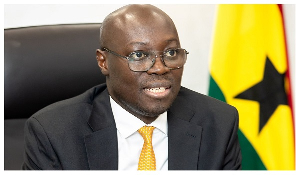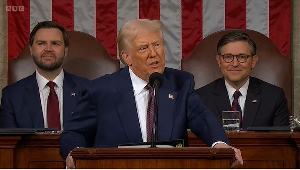Ghana would need over GHC15 billion for a 28-day lockdown, policy think tank, Institute for Liberty and Policy Innovation (ILAPI) has stated.
The policy think tank in a statement said should the country go on lockdown, businesses must be compensated and this also calls for both critical fiscal and monetary measures.
The think tank opined that “the exponential growth of the number of cases is already causing a progressive lockdown. With this development, businesses would close and physical activities would seize. Because of inexplicable barriers that the coronavirus crisis brings, people may be prevented from doing useful things for income and wealth creation.”
According to them, “With a total lockdown, certain goods and services that people would otherwise buy and enjoy will be off limit. It does not mean, however, that one would have stopped eating. Instead, you make your food at home. Due to this Ghanaians may now spend more money on other things. Switching from consumption to saving might be impossible at this time. This will encourage people to spend rather than save.
Making readily available the package is important for private sector planning of business sustainability and job security in this COVID-19 pandemic. Critical areas to consider include; businesses, jobs, internet connection, transport, fuel, tax compliance, raw materials, manufacturing, rent, health care, agriculture, security, utilities and occupational licenses.”
They have therefore outlined 8 suggestions the government could depend on should we go on lockdown.
Among the 8 suggestions, ILAPI admonished the government to provide a temporal shelter for those who may not be able to afford accommodation.
“There are people who don’t even have a place to get locked inside. Ghana has a housing deficit of over 1.5 million. Therefore, the government must advance plans to shelter some millions of Ghanaians in hotels, motels, and guest houses among others.”
General News of Wednesday, 25 March 2020
Source: rainbowradioonline.com

















